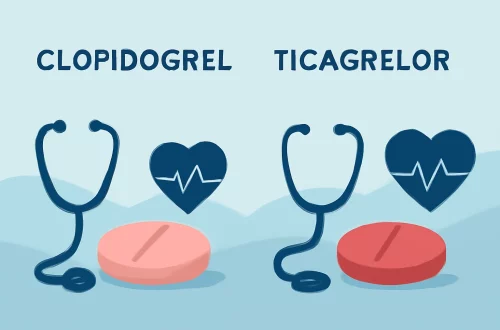
The Benefits of Using Dental Spray for Dogs to Maintain Oral Health
Maintaining oral health is essential for the overall well-being of dogs, much like it is for humans. Just as we prioritize brushing our teeth and visiting the dentist, our canine companions also require diligent care to prevent dental issues. Unfortunately, many dog owners may overlook the importance of oral hygiene, leading to various health problems that can affect their furry friends. The reality is that poor dental health can lead to pain, infections, and even more severe complications, such as heart or kidney disease.
One innovative solution that has gained popularity among pet owners is dental spray. This easy-to-use product offers a convenient way to enhance dogs’ oral hygiene without the need for traditional brushing. The appeal lies in its ability to reach areas that may be difficult to clean with a toothbrush, making it an excellent addition to a dog’s dental care routine. As pet owners become increasingly aware of the importance of oral health, dental sprays are emerging as a go-to option for ensuring that our beloved pets maintain a healthy mouth and vibrant smile.
Understanding the Importance of Oral Health in Dogs
When it comes to canine care, oral health is often an overlooked aspect. Many pet owners might not realize that dental issues can significantly impact a dog’s overall health. The mouth is a gateway to the body, and neglecting dental hygiene can lead to bacteria entering the bloodstream, potentially affecting vital organs such as the heart, liver, and kidneys.
Regular dental care is crucial for preventing common issues like tartar buildup, gingivitis, and periodontal disease. These conditions can cause pain and discomfort, leading to behavioral changes in dogs, including decreased appetite and irritability. Furthermore, dental problems may necessitate costly veterinary treatments, which can be avoided with proactive care.
In addition to health concerns, a dog’s oral hygiene can also affect its breath. Bad breath, or halitosis, is often a sign of underlying dental problems. By maintaining proper oral hygiene, pet owners can help ensure their dogs have fresh breath, making interactions more pleasant.
Implementing a routine that includes dental sprays can aid in combating these concerns. By using dental spray regularly, pet owners can contribute to their dog’s oral health, making a significant difference in their quality of life. It is essential to understand that dental care is not just a cosmetic issue; it is a critical aspect of overall health that should not be neglected.
The Advantages of Using Dental Spray
Dental sprays offer a range of advantages for maintaining dogs’ oral health. One of the most significant benefits is their ease of use. Unlike traditional brushing, which can be challenging for some pet owners and dogs, dental sprays can be applied quickly and without much fuss. This convenience makes it easier for pet owners to incorporate dental care into their daily routines.
Moreover, dental sprays often contain ingredients that help break down plaque and tartar, making them effective in preventing the buildup of harmful bacteria. Many products are formulated with natural ingredients, such as peppermint or green tea extract, which not only help freshen breath but also have antibacterial properties. This dual action can be particularly beneficial for dogs that may not tolerate regular brushing.
Another significant advantage of dental sprays is their ability to reach areas that might be difficult to clean with a toothbrush. The spray can penetrate between teeth and along the gum line, areas where plaque and bacteria often accumulate. This thorough cleansing action can help minimize the risk of dental diseases and promote healthier gums.
Additionally, dental sprays can be a cost-effective solution for maintaining oral health. Regular veterinary cleanings can be expensive and may require anesthesia, which carries its own risks. By using dental sprays as part of a regular oral hygiene routine, pet owners can reduce the frequency of professional cleanings while still ensuring their dogs’ mouths remain healthy.
Finally, many dogs enjoy the flavor of dental sprays, making the process more enjoyable for them. This positive reinforcement can encourage pet owners to be consistent with dental care, ultimately leading to better oral health outcomes for their furry companions.
How to Choose the Right Dental Spray for Your Dog
Selecting the appropriate dental spray for your dog involves considering several factors to ensure it meets your pet’s specific needs. First and foremost, it’s essential to choose a product that is specifically formulated for dogs. Human dental products can contain ingredients that are harmful to pets, so always opt for dog-safe formulations.
When evaluating different dental sprays, check the ingredient list. Look for natural ingredients known for their oral health benefits, such as chlorhexidine, which is effective against plaque and gingivitis, or enzymes that help break down food particles and bacteria. Avoid sprays with artificial additives or chemicals that could be harmful to your dog’s health.
Another important consideration is the flavor of the spray. Many dental sprays come in flavors like chicken or beef, which can make the application process more enjoyable for your dog. If your dog is particularly finicky, it may take some experimentation to find a flavor that they like.
You should also consider the ease of application. Some dental sprays come with a nozzle that allows for precise application, making it easier to target specific areas in your dog’s mouth. Others may require you to spray directly into the mouth or onto the teeth, which can be a bit messier.
Lastly, seek out products that have been tested and approved by veterinarians. Reputable brands often conduct studies to demonstrate the efficacy of their dental sprays, providing pet owners with peace of mind that they are using a reliable product. Checking customer reviews and seeking recommendations from your veterinarian can also help you choose the best dental spray for your dog’s needs.
Incorporating Dental Spray into Your Dog’s Routine
Integrating dental spray into your dog’s oral care routine can be a straightforward process. To start, choose a time when your dog is relaxed and comfortable, perhaps after a walk or during a calm moment at home. This can help create a positive association with dental care.
Begin by introducing the dental spray gradually. Allow your dog to sniff the bottle before applying it to get them familiar with the product. Then, gently spray it into your dog’s mouth or on their teeth, depending on the instructions provided. It’s essential to praise and reward your dog after each application to create a positive experience.
Consistency is key to achieving the best results. Aim to use the dental spray at least several times a week, if not daily, as part of your dog’s routine. Keeping a schedule can help you remember, and your dog will become accustomed to the process over time.
In addition to using dental spray, consider complementing it with other oral health practices. Regularly scheduled veterinary check-ups are crucial for professional cleanings and assessments. You can also incorporate dental chews or toys designed to promote oral health into your dog’s routine.
Remember to monitor your dog’s oral health and look for any signs of dental problems, such as swollen gums, excessive drooling, or difficulty eating. If you notice any concerning symptoms, consult your veterinarian for further evaluation.
In conclusion, maintaining your dog’s oral health is an essential aspect of their overall well-being. By incorporating dental spray into their routine, you can help prevent dental diseases and ensure they have a healthy, happy mouth.
**Disclaimer**: This article is for informational purposes only and does not constitute medical advice. For any health concerns regarding your pet, please consult a veterinarian.




